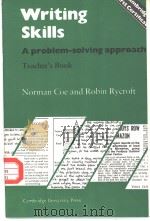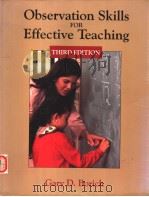《TEACHING LAWYERS'SKILLS》
| 作者 | 编者 |
|---|---|
| 出版 | BUTTERWORTHS |
| 参考页数 | 439 |
| 出版时间 | 1996(求助前请核对) 目录预览 |
| ISBN号 | 无 — 求助条款 |
| PDF编号 | 812921668(仅供预览,未存储实际文件) |
| 求助格式 | 扫描PDF(若分多册发行,每次仅能受理1册) |
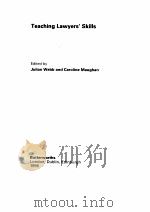
Part Ⅰ THE LEARNING PROCESS3
1 HOW STUDENTS LEARNDiana Tribe5
Introduction5
Learning theory7
Curriculum implications of different student learning styles11
Experiential learning13
Implications of learning models for the assessment and evaluation of student work18
2 WHY THEORY MATTERSJulian Webb23
The hit and miss approach to legal education23
Legal education and educational theory -making connections30
Epistemology and legal skills33
Theory, which theory?34
Conclusions: theorising skills - a SWOT analysis44
Part Ⅱ APPROACHES TO SKILLS TEACHING55
3 LEARNING HOW TO LEARN: THE SKILLS DEVELOPER'S GUIDE TO EXPERIENTIAL LEARNINGJulian WebbCaroline Maughan59
Rethinking the familiar59
Experiential learning theory69
Testing the theory77
In the end was the beginning: preparing for future action94
4 SKILLS IN THE INITIAL STAGE OF LEGAL EDUCATION: THEORY AND PRACTICE FOR TRANSFORMATIONAndy Boon99
The context of the skills debate in higher education100
Skills in legal education in England and Wales108
Towards holism - a case study112
Skills and skills assessment in theundergraduate curriculum124
Conclusion127
5 THE THEORY AND PRACTICE OF CLINICAL LEGAL EDUCATIONRichard Grimes137
Introduction137
What is clinical legal education?137
How does clinic operate?141
Theories of learning142
Clinic as part of the curriculum146
The practice of clinical legal education153
Conclusion161
6 LAW STUDENTS AS PRACTITIONERS: DEVELOPING AN UNDERGRADUATE CLINICAL PROGRAMME AT NORTHUMBRIA UNIVERSITY Hugh Brayne167
The University of Northumbria167
From Law Clinic to Law Office169
From Law Clinic to Student Law Office174
Student Law Office in an exempting degree179
Now where?180
Issues in clinical legal education181
Summary and conclusion185
7 PROBLEM-BASED LEARNjNG IN LEGAL EDUCATIONDavid A Cruickshank187
Introduction187
What is problem-based learning?188
Advantages of problem-based learning199
Disadvantages of problem-based learning203
Problem-based learning in action206
Critiques of legal education220
Implementing problem-based learning in legal education229
8 SKILLS TEACHING ON THE LEGAL PRACTICE COURSEPeter Kilpin241
Introduction241
General issues relating to skills teaching on the LPC242
Tutor and student viewpoints on skills teaching245
The development of skills teaching254
Conclusions258
9 TAKING REFLECTION SERIOUSLY: HOW WAS IT FOR US?Caroline Maughan and Julian Webb261
How did we get here?261
The Legal Process course264
The role of reflection270
Making learning theory explicit275
Assessing reflection283
Where do we go from here?288
10 WE'RE ALL REFLECTIVE PRACTITIONERS NOW: REFLECTIONS ON PROFESSIONAL EDUCATIONPhilip A Jones291
Introduction291
Reflective practice as professional artistry: the work of Donald Sch?n295
Towards an integrated map of professional knowledge as a foundation for competence-based education306
Reflective practice as critique313
Conclusion319
Part Ⅲ COMPETENCE, ASSESSMENT AND EVALUATION327
11 OUTLINE OF A GENERAL THEORY OF PROFESSIONAL COMPETENCESRichard Winter331
Competence - broad or narrow definition331
Empirical or theoretical methods of derivation332
Differentiation of levels of knowledge334
Towards a model of the experienced professional worker337
Professional work and the learning cycle343
Conclusion - developmental reflection through professional experience: towards a general theory of professional competences346
12 DIY LEARNING: SELF AND PEER ASSESSMENT Diana Tribe353
Traditional forms of assessment - the effect on law academic staff353
The development of peer and self assessment in law357
Problems with self and peer assessment363
Strategies for incorporating self and peer assessment into the curriculum364
Appendix: Example of materials designed to employ self and peer assessment strategies369
13 A CAPABILITY APPROACH TO ASSESSING SKILLS ON THE LPC:A STRATEGY FOR DEVELOPING EFFECTIVE FUTURE PERFORMANCEMike Maughan377
Why change to a capability approach?377
The tool kit391
14 DEVELOPING STUDENT EVALUATION OF COURSESJoanna Shapland403
Methods of evaluating courses403
Deciding on methods of evaluation408
What can one learn from a student evaluation exercise?413
The relation between expectations and the results of student evaluations415
Reactions and responding to reactions419
INDEX425
1996《TEACHING LAWYERS'SKILLS》由于是年代较久的资料都绝版了,几乎不可能购买到实物。如果大家为了学习确实需要,可向博主求助其电子版PDF文件(由 1996 BUTTERWORTHS 出版的版本) 。对合法合规的求助,我会当即受理并将下载地址发送给你。
高度相关资料
-
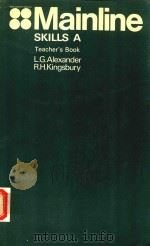
- MAINLINE SKILLS A TECHER'S BOOK
- 1975 LONGMAN
-

- EDUCATIONAL PSYCHOLOGY THE DEVELOPMENT OF TEACHING SKILLS
- ELWIN C.NIELSEN"
-
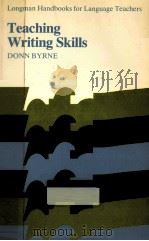
- Teaching writing skills
- 1979 Longman
-
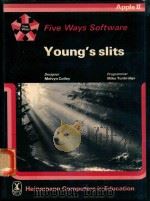
- YOUNG'S SLITS TEACHING NOTES
- 1982 HEINEMANN COMPUTERS IN EDUCATION LTD
-
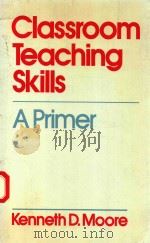
- CLASSROOM TEACHING SKILLS A PRIMER
- 1989 COPYRIGHT
-
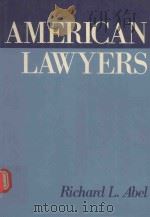
- AMERICAN LAWYERS
- 1989 OXFORD UNIVERSITY PRESS
-

- LAWYERS
- 1977 THE LAW BOOK COMPANY LIMITED
-
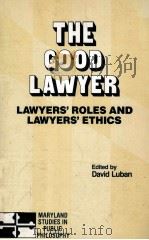
- THE GOOD LAWYER LAWYERS' ROLES AND LAWYERS' ETHICS
- 1983 ROWMAN & ALLANHELD
-
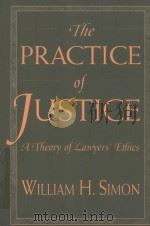
- THE PRACTICE OF JUSTICE A THEORY OF LAWYERS' ETHICS
- 1998 HARVARD UNIVERSITY PRESS
-
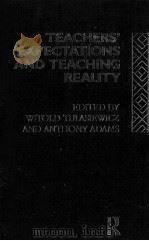
- Teachers' expectations and teaching reality
- 1989 Routledge
-

- SCIENCE PROCESS SKILLS IN TEACHING AND LEARNING
- 1988 COMMONWEALTH PUBLISHERS
-

- PRIMARY TEACHING SKILLS
- 1993 ROUTLEDGE
-
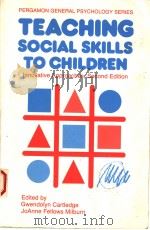
- TEACHING SOCIAL SKILLS TO CHILDREN INNOVATIVE APPROACHER SECOND EDITION
- 1986 PERGAMON PRESS
提示:百度云已更名为百度网盘(百度盘),天翼云盘、微盘下载地址……暂未提供。➥ PDF文字可复制化或转WORD
